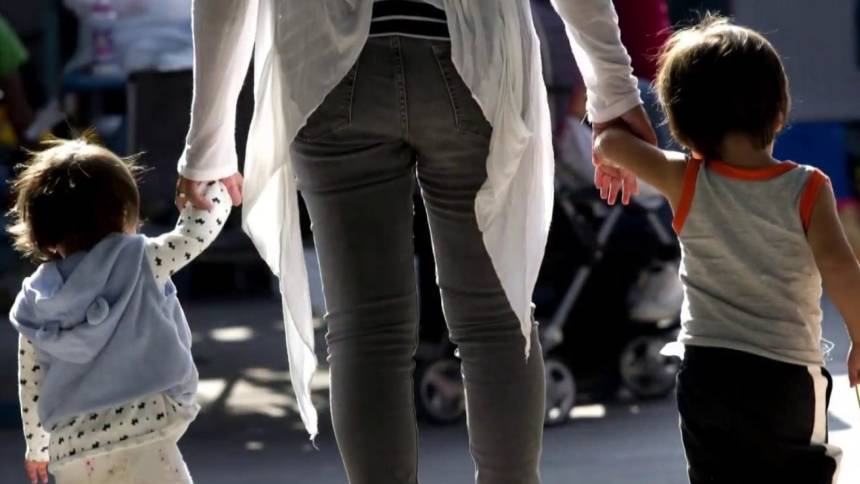Nearly 1,400 autoworkers are about to lose their jobs at Illinois plant
- ROBERT CHANNICK Chicago Tribune
- 20 hrs ago
BELVIDERE — When the final whistle blows this weekend for workers on the third shift at the Belvidere Assembly Plant near Rockford, the nearly 1,400 members of "C Crew" will punch out for the last time, downsized out of a job because of slowing demand for the plant's only product _ the Jeep Cherokee.
It is a straightforward business decision for Fiat Chrysler Automobiles, which is scaling back to a traditional two-shift schedule at the plant amid softening sales and a glut of competitors.
But for residents of Belvidere, a small river city situated amid sprawling cornfields about 75 miles northwest of Chicago, Monday will be anything but business as usual.
"I'm scared," said Mike Dovey, 57, of Poplar Grove, whose two years at the plant end Saturday. "There's a lot of uncertainty. You don't have a job, you've still got to pay all your bills."
Dovey was among the 1,371 least-tenured union workers at the plant who received notice from Fiat Chrysler in February that the third crew _ and their jobs _ would be eliminated in May. In addition, hundreds of employees at nearby suppliers like Syncreon and Android have been permanently laid off as well, according to state filings.
The anxiety among residents here is palpable, even as the plant, which employed 5,464 at the start of 2019, will likely remain the region's largest employer. Fiat Chrysler declined to say what the actual Belvidere employee count will be after the layoffs, but it's not lost on people here that the automaker is investing billions in new production capacity elsewhere.
Hundreds of displaced Chrysler workers attended a recent UAW Local 1268 severance meeting at the Belvidere community center, filing through a gray rain to face a grim choice: They have until May 13 to decide if they want temporary positions at the Belvidere plant, and whether to sign up for full-time openings down the road at either their home plant or Chrysler facilities in other markets such as Detroit and Toledo, Ohio.
The laid-off autoworkers are also eligible to receive $13,000 worth of federally funded job training if they want to change careers.
Dovey, who attended the meeting, said he was considering going back to school to become either a truck driver or a correctional officer, but had no interest in relocating for Chrysler. He already moved, from Boston, 17 years ago.
"I own a home. Now I've got to sell my house, move all my stuff," he said, before adding, "Why do I want move there?"
Brian Pasch, 33, of Rockford, who also attended the UAW information session, worked in the chassis department at Belvidere for two years, putting seats in the cars. He previously worked for a supplier to the plant.
While the layoff put plans to buy a house for his wife and stepson on hold, Pasch said he would be willing to take temporary work at the Belvidere plant on the two shifts that will remain, or relocate to Chrysler plants in Toledo or Detroit if he could land full-time work.
He's not being fussy.
"This is all I know, so whatever they offer me, I'll take," Pasch said.
An auto town
A stroll on State Street in Belvidere, a city of 25,000 that straddles the Kishwaukee River, reveals a quaint downtown with eclectic ma-and-pa retailers, some vacant storefronts and an assortment of colorful murals adorning the sides of its brick buildings. One of them features Jeanne Gang, a native daughter whose architecture firm is reshaping Chicago's skyline.
For more than half a century, Belvidere has been an auto town, its fortunes inextricably tied to the Chrysler auto plant, which brought hope, jobs and a succession of new car models _ some more popular than others.
The first car that rolled off the line on July 7, 1965, was a snazzy, white, four-door Plymouth Fury II sedan, which is proudly displayed at the Boone County Museum of History in downtown Belvidere. The original sticker remains affixed to the window: The car had a base price of $2,684. Extras, like an AM radio ($57.35), an electric clock ($15.30) and the always dubious undercoating ($15.40), brought the total to $3,206.90.
Over the years, the plant was retooled several times, and made everything from the compact Dodge Omni to the land-yacht Chrysler New Yorker. All the while, it was a survivor. During Chrysler's painful bankruptcy in 2009, the plant was down to 200 employees before Fiat and a government bailout rescued it and the company.
By 2012, the plant had new life. Fiat Chrysler's dynamic chairman, Sergio Marchionne, visited the plant, fresh off a $700 million investment to gear up for production of the Dodge Dart. To an exuberant crowd standing amid the retooled assembly lines, he announced that the plant would add a third shift and 1,800 workers.
As recently as 2017, the plant's future seemed secure when it became the exclusive home for the Jeep Cherokee, the sweet spot in an auto industry where SUVs have supplanted cars in many family garages. Last year, when GM announced it would close plants because of flagging sedan sales, Belvidere was humming along, producing nearly 270,000 Jeep Cherokees _ up 27 percent from 2017.
Shifting winds
Now Fiat Chrysler is applying the brakes on Cherokee production and eliminating the third shift at Belvidere. Fiat Chrysler has given no indication of further cutbacks, but there are reasons for concern, according to Michelle Krebs, a Detroit-based analyst for Autotrader.
"The third shift is always the first to go when sales begin slumping," Krebs said.
Fiat Chrysler sales fell 3.2 percent in the first quarter of 2019, outpacing the 2.5 percent year-over-year decline across the broader auto industry, according to Edmunds.
But beyond industry trends, Krebs said the Belvidere plant faces an uphill climb with its reliance on the Jeep Cherokee, an older nameplate relaunched as an all-new model in 2013.
A redesigned Cherokee won't arrive until 2022, according to Fiat Chrysler spokeswoman Jodi Tinson.
A bigger concern for Belvidere's future may be something it cannot control: its location. While Fiat Chrysler is laying off employees in Illinois, it announced plans to build a new $4.5 billion assembly plant in Detroit, and to retool five existing facilities in Michigan, creating nearly 6,500 jobs.
"One disadvantage a plant like Belvidere has is it's kind of out of the way from all the other plants," Krebs said. "It's one of the things considered when they decide where to put products into plants."
Krebs pointed to location as a key reason GM pulled the plug on its plant in Janesville, Wis., during the Great Recession in December 2008. That decision, once unthinkable, ended a 90-year run for the auto plant, displacing 1,200 remaining workers.
Economic impact
Even if the Belvidere plant maintains a two-shift operation, the elimination of the third crew may have far-reaching consequences.
An economic impact analysis by Northern Illinois University projected that more than 3,600 auto industry and other jobs could be lost in the wake of the plant layoffs, reducing the region's annual gross domestic product by $467 million.
"This is a serious event in the regional economy up here," said Brian Harger, a researcher at the Northern Illinois University Center for Governmental Studies who conducted the analysis.
Job one is, of course, finding work for thousands of displaced employees, who made between $17 and $28 per hour at the Belvidere plant, according to Tinson.
Some development officials point to low unemployment and a diverse manufacturing economy led by a booming aerospace industry as reasons for optimism. Leading aerospace companies include Collins, which has 1,700 local employees, and Woodward, which has 2,000 employees.
"I'm not overly worried about our area's ability to pull the slack right back," said Nathan Bryant, president and CEO of the Rockford Area Economic Development Council. "Although it is a blow, it's not an insurmountable challenge for our market to begin to reabsorb a lot of those positions over time."
But others are skeptical, saying it will be difficult to place so many autoworkers in comparable positions anytime soon.
"We've done some research on available manufacturing positions," said John Strandin, a spokesman for the Workforce Connection, a state and federally funded Rockford-based organization providing employment training programs. "A lot of them are engineering-type positions _ it's not an exact match."
The Workforce Connection held a hiring event Wednesday for displaced Chrysler, Android and Syncreon workers at the UAW Hall in Belvidere, with about 100 job seekers and 36 employers attending. Offerings included second-shift chip cook at Kettle Foods in Beloit, Wis.; warehouse delivery at Choice Furniture in Rockford; and machinist at Rockford-based Kaney Aerospace.
Pam Lopez-Fettes, executive director of Growth Dimensions, the economic development organization for Belvidere and Boone County, said it will be hard for laid-off Chrysler workers to find jobs that pay as well.
"It's going to be a challenge to find somebody with competitive wages," Lopez-Fettes said.
Deep anxiety
In Belvidere, as the third crew departs, everybody from retired autoworkers to a local barber has an opinion on the fate of the plant and the city .
Jeff Hale, 53, of Rockford, a 22-year veteran of the Belvidere plant, didn't lose his job, but he attended the UAW informational session with his less-tenured brother, Jerry, 49, who was laid off.
"It's going to hurt the economy," Hale said. "They're going to feel it. I've seen places close when we've cut shifts _ restaurants, bars, small businesses around the area."
Then there's James Emanuel, owner of Hub Barber Shop, a downtown Belvidere institution dating back more than a century. He was philosophical about the layoffs as he pulled out a straight razor to do the final trims for his lone customer.
"That's just the nature of the automobile industry. It's always going up and down," Emanuel said. "There's been a lot of people that have been fortunate to work out there during the good times, put their 30 (years) in and now they're done."
One such worker was Jerry Hall, 73, a lifelong Belvidere resident who was employed at the plant from its opening in 1965 until his retirement in 2001, and later ran a coin shop on State Street.
Hall ruminated on the fallout from the layoffs after a late-afternoon meal at Grandma's Family Restaurant, a Belvidere diner which has been serving workers from the nearby Chrysler plant for 25 years.
"It worries everybody, if you have anything invested in this town," said Hall, whose wife of 53 years died last August. The UAW sent him a "very nice" plant.
Hall, who recently bought a new Ram truck to support the company that employed him throughout his career, said the Chrysler plant brought growth and development to Belvidere.
At the same time, he remembered what happened when Belvidere's previous manufacturing giant, the National Sewing Machine Co., closed up shop in the 1950s, putting his own father out of a job.
"He went to Rockford, did machinist work for a while," Hall said. "Then he came back to Belvidere and he was a janitor before he retired."
Dovey, a Boston transplant who has "put down roots" in Illinois in a home he owns with his wife, said the outlook for Belvidere and the plant appeared bleak on the eve of his layoff, worrying aloud about the future of Fiat Chrysler itself.
But more than anything, he pondered a question for which he had no answer:
"I'm 57. How employable am I going to be after this?"
Above is from: https://herald-review.com/news/state-and-regional/nearly-autoworkers-are-about-to-lose-their-jobs-at-illinois/article_4ffe9b3c-f6a1-5bde-873e-67ff40df3b6c.html
 By Hyonhee Shin and Joyce Lee,Reuters 14 hours ago
By Hyonhee Shin and Joyce Lee,Reuters 14 hours ago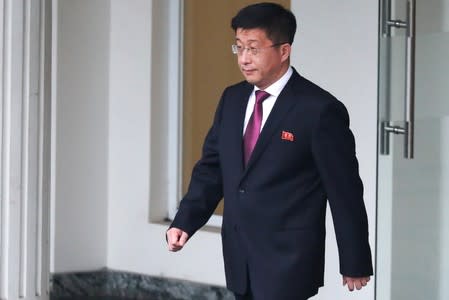 Kim Hyok Chol, North Korea's special representative for U.S. affairs, leaves the Government Guesthouse in Hanoi
Kim Hyok Chol, North Korea's special representative for U.S. affairs, leaves the Government Guesthouse in Hanoi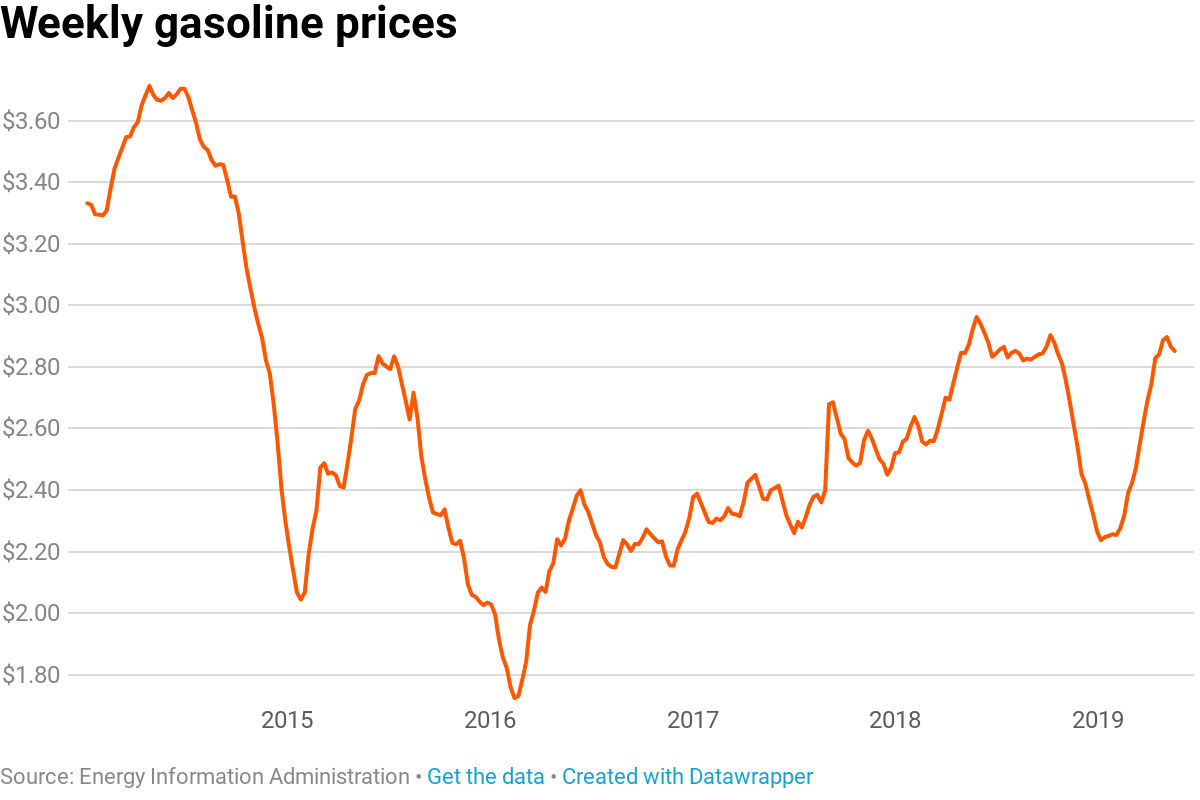


 Image copyrightSCIENCE PHOTO LIBRARYImage captionOne of the Chagos Islands - Diego Garcia - is home to a US military base
Image copyrightSCIENCE PHOTO LIBRARYImage captionOne of the Chagos Islands - Diego Garcia - is home to a US military base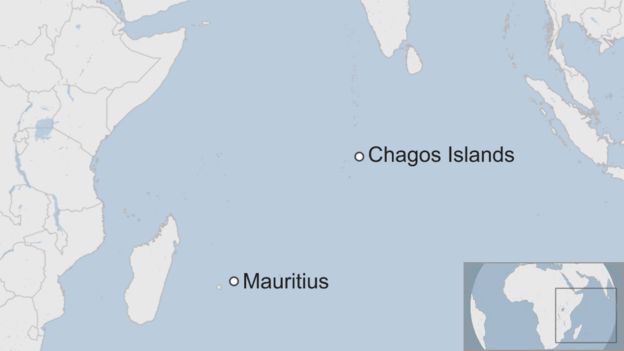

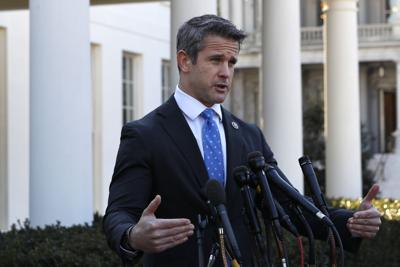
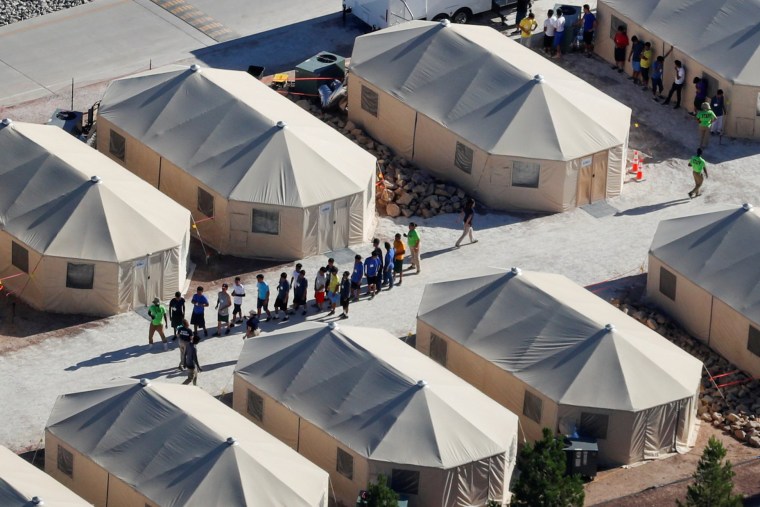
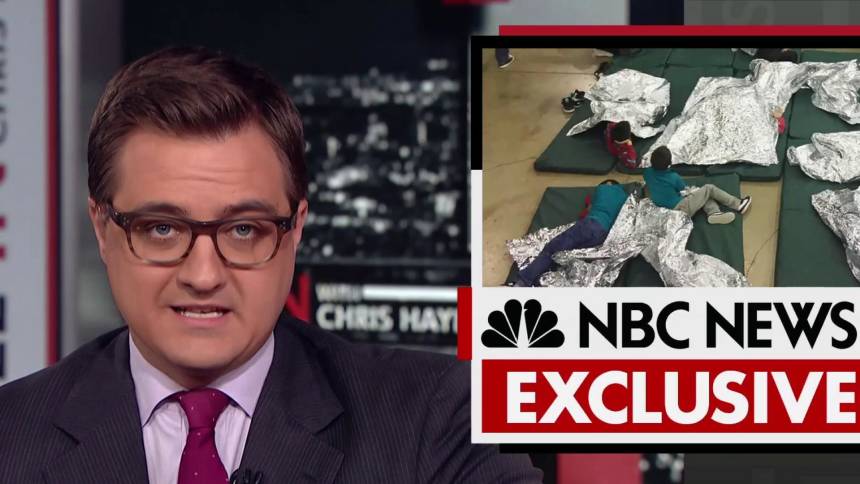
 A child watches as a Border Patrol agent searches a Central American immigrant after they crossed the border from Mexico in El Paso, Texas on February 1, 2019.John Moore / Getty Images file
A child watches as a Border Patrol agent searches a Central American immigrant after they crossed the border from Mexico in El Paso, Texas on February 1, 2019.John Moore / Getty Images file